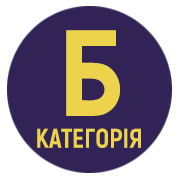INDIVIDUALIZATION OF ENGLISH LANGUAGE FOR SPECIFIC PURPOSES TEACHING IN HIGHER EDUCATION INSTITUTIONS
DOI:
https://doi.org/10.32782/ped-uzhnu/2024-7-9Keywords:
English for Specific Purposes, individualization, student, education, higher education institutionAbstract
In the modern world, where English has become a global means of communication, training competitive specialists requires the implementation of innovative approaches taking into account the individual characteristics of students. In teaching English, individualization takes on special importance, since mastering the language requires not only knowledge of grammatical rules or vocabulary but also the development of communication skills, critical thinking, and the ability to adapt to different language situations. The article aims to study and substantiate the importance of individualization of English language teaching in higher education institutions as one of the key factors in the effective formation of students’ language and communicative competencies. Individualization of learning is defined as an educational approach aimed at taking into account the individual characteristics of students during the educational process. It consists in adapting the content, methods, pace, and form of learning to the personal needs of each student, which allows for maximizing his potential for achieving success in learning. Implementing an individualized approach to teaching English for Specific Purposes in higher education institutions has both advantages and challenges. The benefits include increasing students’ motivation, optimizing the learning process, improving learning outcomes, reducing stress and anxiety, and developing students’ autonomy and independence. The challenges include the need for highly qualified teachers, the cost of time and resources, the risk of uneven students’ progress, technical problems, and the quality of access to resources. Individualization does not mean complete separation of students from each other, so it is important to maintain a balance between individual tasks and group activities. Practical recommendations for teachers on adapting the educational process to the individual needs of students studying English for Specific Purposes in higher education institutions can be an individual approach to planning the educational process, a variety of teaching methods, creating a motivational environment, developing students’ independence, using technologies that allow each student to move within their capabilities and needs, and ensure more effective learning of the material in higher education institutions.
References
Барановська О. В. Розвиток творчої особистості в умовах диференційованого навчання. Райдуга творчості : Практично зорієнтований посібник / Гол. ред. В. І. Сафіулін. К. : Освіта України. 2010. С. 53–60.
Грицай І. С. Основи індивідуалізації процесу навчання іноземних мов. 2015. URL: https://kamts1.kpi.ua/sites/default/files/f iles/hrytsai_osnovy_indyvidualisatsii.pdf.
Демчук О. Дидактичний потенціал змішаної форми організації освітнього процесу щодо індивідуалізації навчально-пізнавальної діяльності студентів. Освіта. Інноватика. Практика. Вип. 12(3). 2024. С. 14–19.
Дніпровська Т.В., Кондрашова О.В. Методика індивідуалізованого навчання студентів закладів вищої освіти англійської мови за професійним спрямуванням. Інноваційна педагогіка. Вип. 68. Т. 1. 2024. С. 138–141.
Осадча О. Індивідуалізація процесу вивчення іноземних мов у закладах вищої освіти через застосування стратегій множинного інтелекту. Актуальнi питання гуманiтарних наук. Вип. 71, Т. 2. 2024. С. 308–313.
Патлайчук О., Брюховецька І. Індивідуалізація освітнього процесу у закладі вищої освіти в умовах змішаного навчання. Grail of Science. Вип. (37). 2024. С. 375–377.
Bray B., McClaskey K. Personalization vs Differentiation vs Individualization Report (PDI) v3. 2012. URL: https://www.slideshare. net/bbray/personalization-vs-differentiation-vs-individualization.
Kostolányová K. Nedbalova S. Individualization of Foreign Language Teaching through Adaptive eLearning. International Journal of Distance Education Technologies, 2017. 15(2). P. 1–17.







